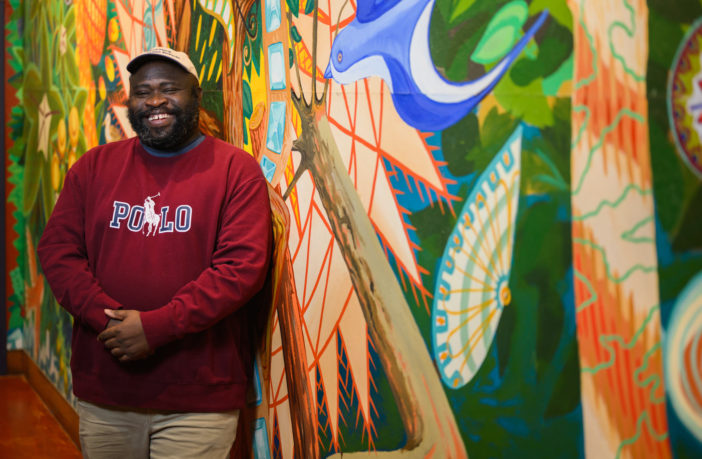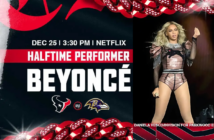Music journalist John Morrison is a knowledgeable source of information regarding hip hop’s past and present, bringing intelligence and insight to the foundation of one of the fastest-growing cultures in Western history. His award-winning podcast on I Heart Radio with Josh Indi Leidy, Serious Rap Sh*t, is hilarious and full of gems, along with his understanding of hip-hop electronic equipment that shapes the sound of music across eras. Morrison talked to us about hip hop’s resilience and deep relevance.
AmNews: What do you think when you hear “50 years of hip hop”?
Morrison: I’m elated hip-hop culture has been this resilient. I think about the conceptual leap required to make rap music. You have young people who aren’t going to sing—they’re going to talk rhythmically over music. And they’re going to re-purpose grooves and melodies from pre-existing records. That sorta thing required a conceptual leap. It was really like an avant-garde kinda stance to do all that and violate these musical rules. The fact that hip-hop music and culture has—for better or for worse—infiltrated into the mainstream, I think about the innovation required. The innovation to make that leap. And then the resilience to keep it evolving.
It’s kinda mind-blowing.
AmNews: Do you think hip hop is more emotionally clear than rock and other genres?
Morrison: I don’t look at it as one is more expressive than the other. I think that rap, in particular, didn’t come out of nowhere. The genre emerged post-civil rights, post-Black Power movement. Black folk in general were working, struggling really, to carve out more-expressive space. We had been locked up with what we could express, ways we could express ourselves, and I think rap music was the children of the generation that opened up some of that space.
I think rap music, by its nature, is very honest and direct. That’s a hard-fought directness that our parents, grandparents, fought for rap music to become. Rap allows a different kind of honesty for Black people. It’s a tool that we can use to express ourselves in a way we weren’t allowed to in [past]generations.
RELATED: New York Amsterdam News first to print the term ‘Hip-Hop’
AmNews: What do you think were the factors that caused that freedom?
Morrison: I think because of the political struggles of the late ’50s, ’60s, ’70s, that Black folks in general started to look at society and think we can express ourselves in a different way. We don’t have to adhere to this respectability idea, or things like that. It all happened on a continuum—Black folks had been engaged in a Black freedom struggle since we got here and before. The Black liberation struggle in the ’60s and ’70s cleared a pathway for what would happen later.
AmNews: How do you think artists like NWA survived, regarding saying “F**k the Police”?
Morrison: I think that rap music exists in a strange and contradictory space, particularly gangster rap. Gangster rap is a legitimate expression of Black folks’ outrage—it’s inherently anti-authoritarian, but it also exists in this dynamic of white voyeurism and the record industry. Ice T (with Body Count) had a song called “Cop Killer” and then went on to play a cop on TV on “Law & Order” for 20-something years.
The expression is genuine, and the sentiment is genuine. But I think that these artists don’t get stamped out like, say, the Panthers did because there was a business and voyeurism from white rap fans that put [today’s artists] in a different place. It’s different when you’re Black and outraged but also a pop star.
AmNews: What are some of the shining moments that you consider to be a celebration, or a landmark accomplishment, of the genre?
Morrison: For me, one of the gifts hip hop has given us is DJ and sampling culture, specifically hip-hop DJ. The way the hip-hop DJ has taken music from the past and re-introduced and reformed it for contemporary audiences; the way sampling culture has pushed music and technology—it’s been a beautiful thing to see. Now young people have a clear, tangible link to the past.
I was DJing at a party last month and there was a little group of Black girls; the oldest one was 8. And they were singing “Get Down on It.” I’m like, Why do y’all know that song? Because a young artist sampled it, and it’s all over TikTok.
Sampling and hip hop have allowed Black folks in particular—really the world—to have this tangible link to the music of our parents, our grandparents. And it’s a beautiful thing. That, to me, is the most significant contribution [of]hip hop.
AmNews: What do you see, envision, hope for the future of hip hop?Morrison: I saw Drew Dixon tweet something about how women, in particular, had to fight extra-hard for credit and decency within the rap music industry [and]hip-hop culture, and she said my hope is that in the next 50 years, it’ll be easier for women. I would extend that to people who are not cis, not heterosexual. My hope is that all of this beauty that hip-hop culture creates can be extended to other people, in a more meaningful way. I’ve seen how women and queer people have been made to feel excluded in this thing, and it’s a fuckin’ beautiful culture, but we could do a lot more to open it up. That’s really my hope: be kinder to the people it hasn’t always been kind to in the past.
Like this:
Like Loading…



